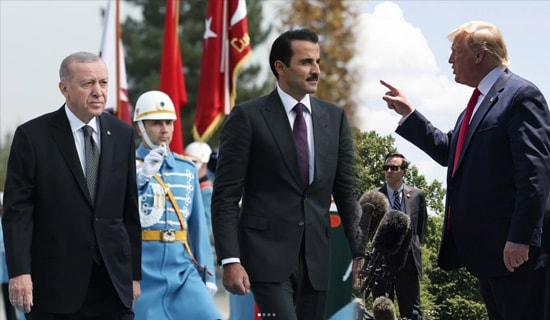In an article published August 11, 2016 in the London-based Saudi daily Al-Sharq Al-Awsat, the daily's former editor 'Abd Al-Rahman Al-Rashed wrote that the atrocities committed by ISIS and others in the name of Islam are the product of extremist ideas that are spread in mosques, schools and the media. Mentioning the horrific story of Nadia Murad, a young Yazidi woman who was abducted and gang-raped by ISIS fighters, as well as the case of Egyptian preacher Wagdy Ghoneim who accused the late Egyptian scientist and Nobel laureate Ahmed Zewail of apostasy, Al-Rashed stressed that such phenomena will persist as long as society does not reject and punish all those who preach, and all those who applaud, extremist ideas and actions.
The following is an English translation of his article that was published on the Al-Arabiya website.[1]

'Abd Al-Rahman Al-Rashed (Image: Alarabiya.net)
"A young girl was abducted and gang-raped by the Islamic State of Iraq and Syria (ISIS), along with family members and other girls from her town and other Iraqi Yezidi towns. This was done in the name of Islam, while extremists continue to publicly commend these criminals under false justifications such as 'jihad' and 'supporting Muslims.'
"One of the victims is Nadia Murad, a brave Iraqi girl who dared to tell her story and that of her family. She made those at the UN Security Council weep as they listened to the horrific details of what happened to her and to around 5,000 Iraqi women abducted by ISIS last year. Some of these women are still in ISIS-controlled territories.
"I watched her interview with Hasan Muawad on Al Arabiya. She did not talk about her personal tragedy, but about the wider tragedy of how these hideous idea[s] are glorified, and how more young men are committing such atrocities while more clerics are justifying them.
ISIS executed 700 unarmed men in her town in an hour for no reason. They were all peasants. Murad said she and her family were taken to Mosul, Tal Afar and Al-Hamdaniya, and she was repeatedly raped. She does not know what happened to her family as she was separated from them. No one can forgive the perpetrators of these crimes and who they represent.
"She said [that] despite the anger and pain, she wants to focus on convincing society to reject extremism and not hate the society where these ISIS criminals came from. However, her tragedy and that of her people will remain a disgrace to the entire world forever. How can crimes like these happen in the 21st century via ideas that are promoted by media, mosques and schools? How have they not been challenged all these years?
"The problem is with extremists, or rather with those preaching extremism. They do not necessarily live in Ar-Raqqah or Mosul. They may live in Paris or Kuala Lumpur. They permit rape, murder and aggression against anyone who they think is not like them. They are the source of the disease.
"A few days ago, extremist preacher Wajdy Ghoneim accused the late Egyptian scientist and Nobel laureate Ahmed Zewail of apostasy. This is a new crime committed in public, and no one is doing anything about it. Ghoneim cites extremist scholar Nasir al-Fahd, who is like him. The only difference is that Fahd is detained in Saudi Arabia while Ghoneim is free, saying whatever he wants without being held accountable, and inciting people through his TV appearances and social media accounts. There are many like him.
"We are [experiencing] exceptional circumstances, and terrorism will not stop unless extremist preachers and scholars are warned that they will be punished for their extremist calls. Terrorists who murder and rape people are present worldwide, and are the product of people like that man [Ghoneim] who accuses others of apostasy and curses them."
Endnotes:
[1] English.alarabiya.net, August 11, 2016. The text has been lightly edited for clarity.




.jpg)